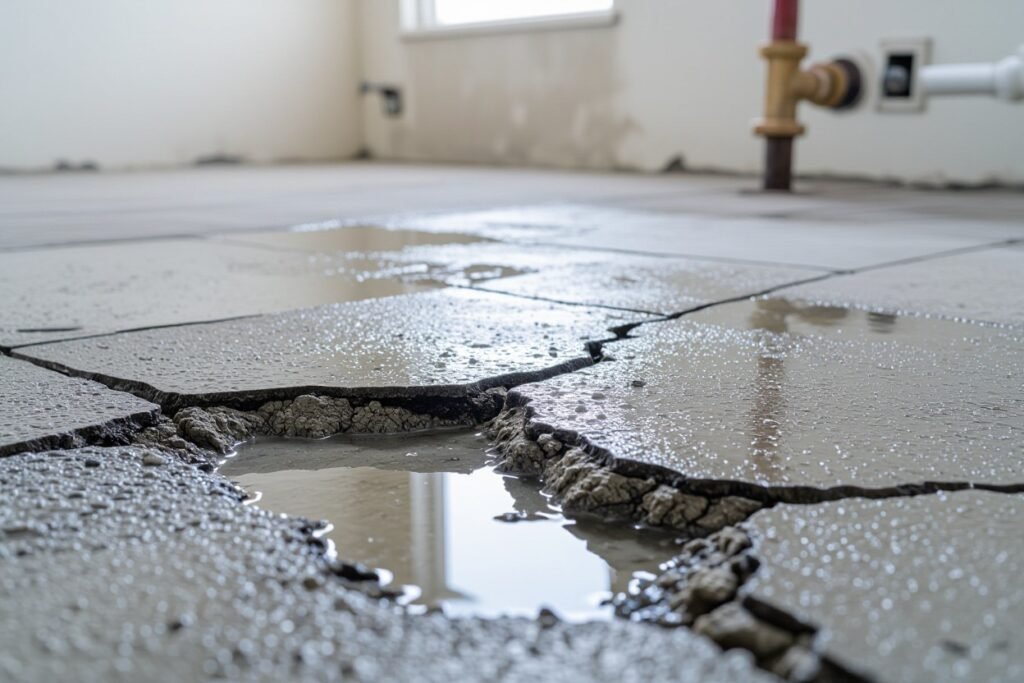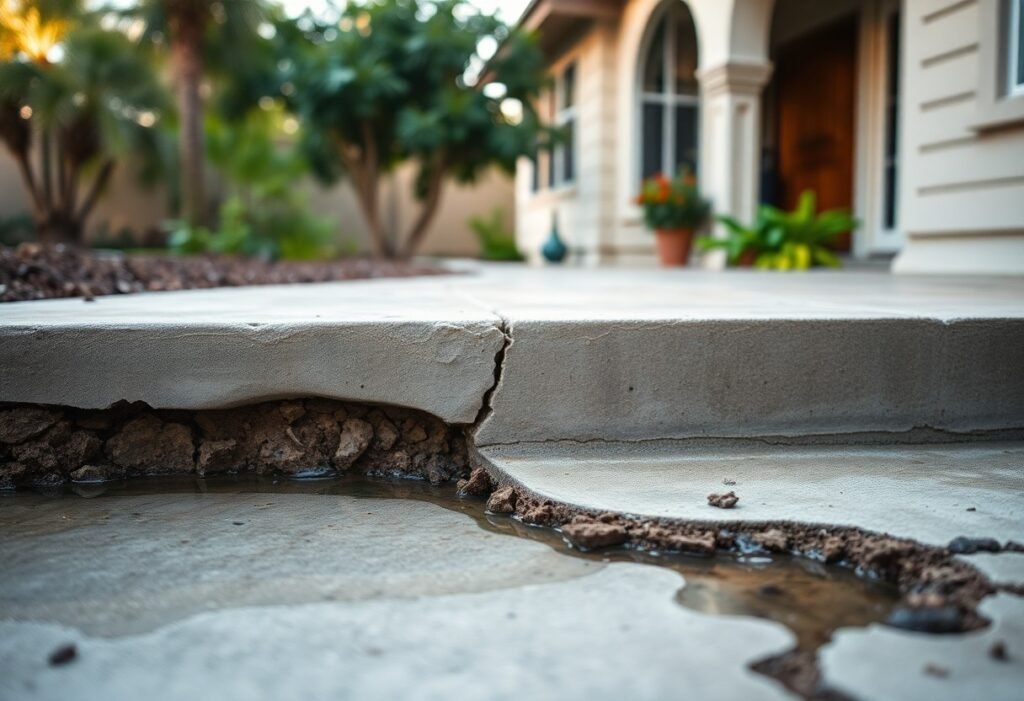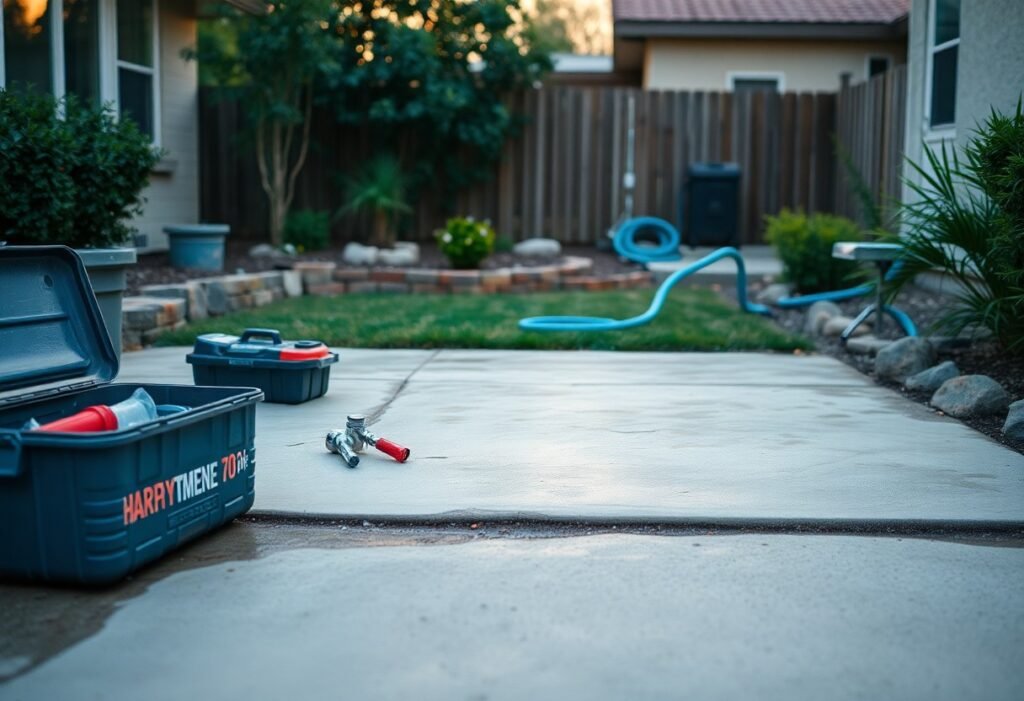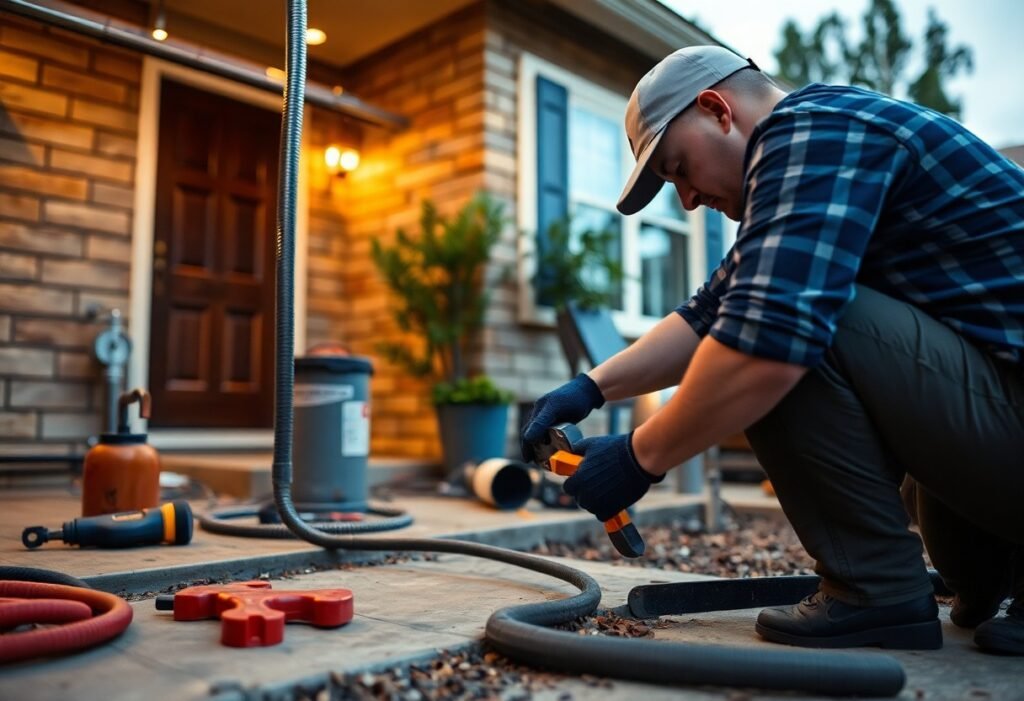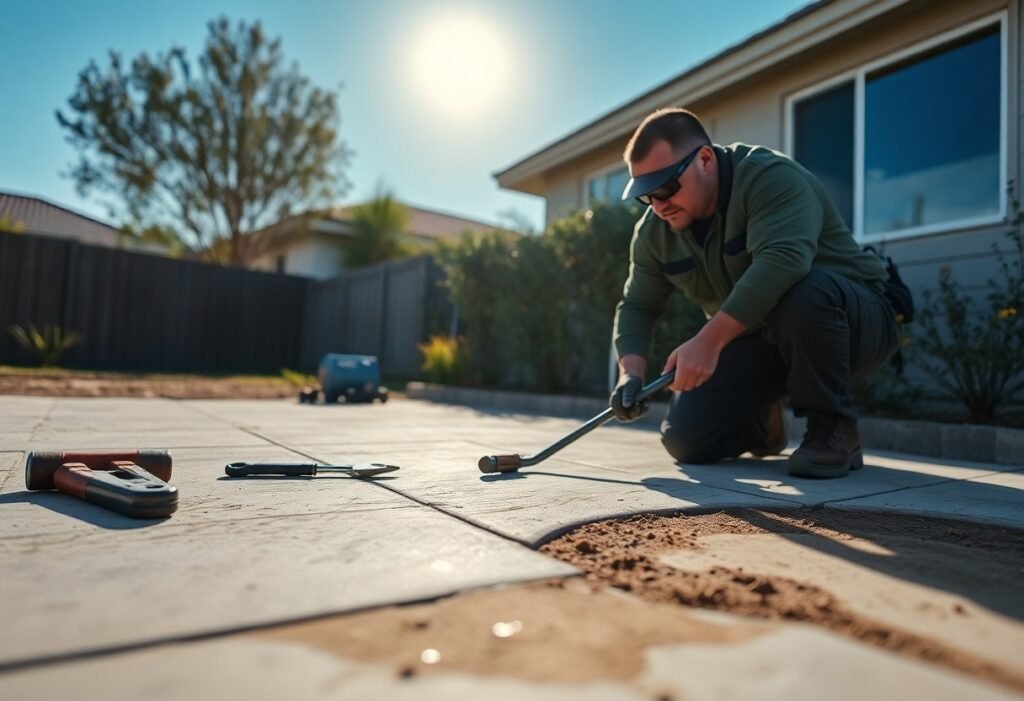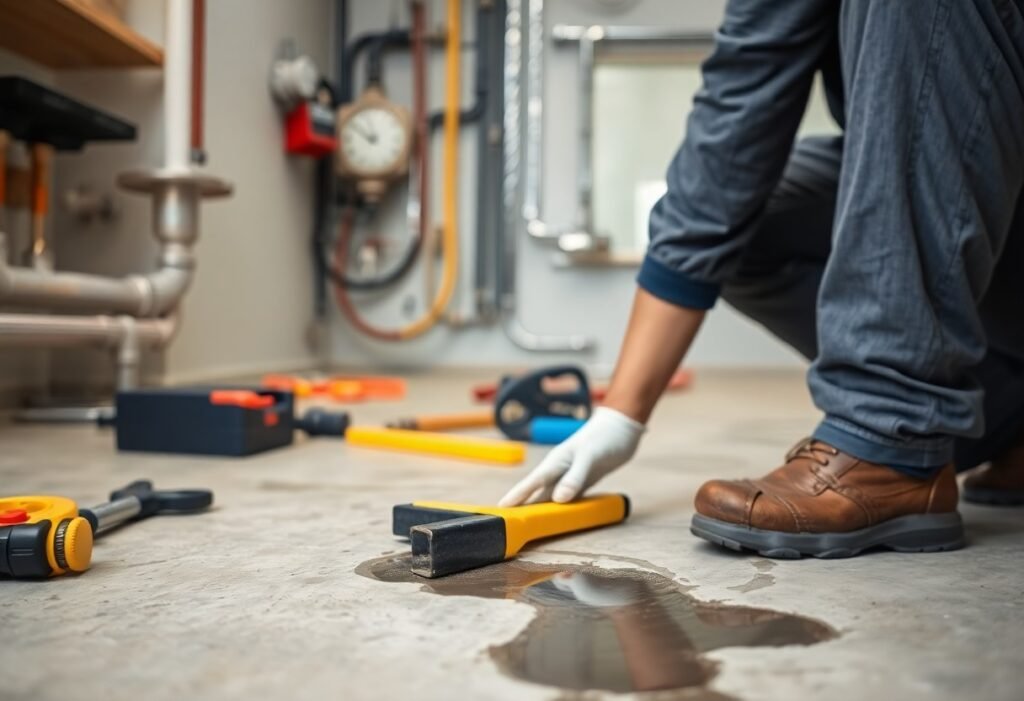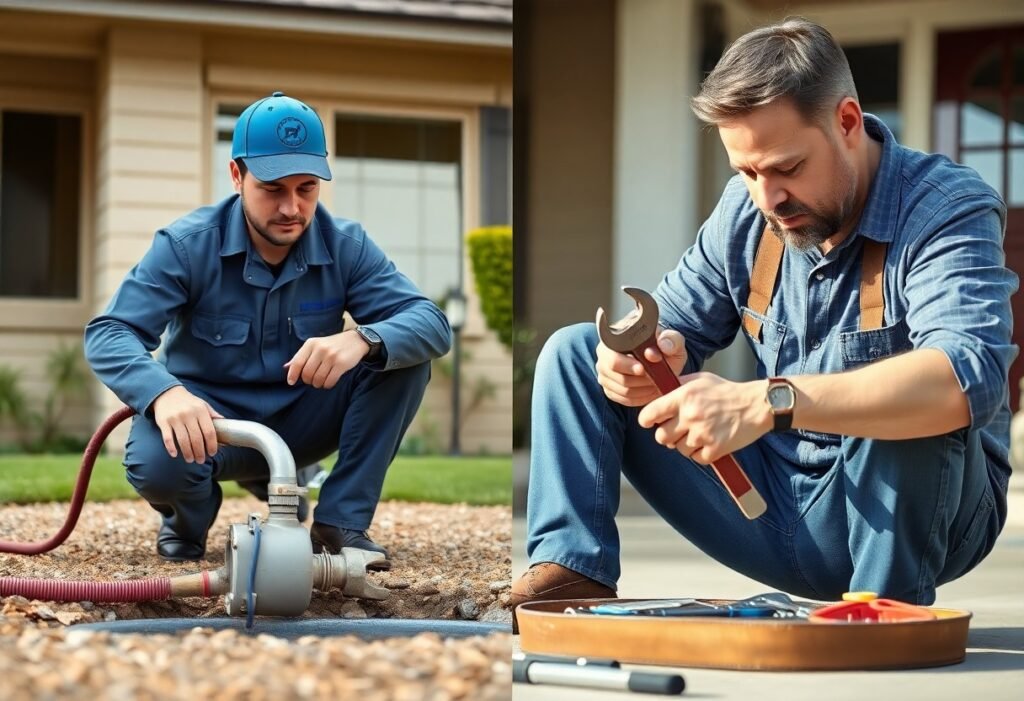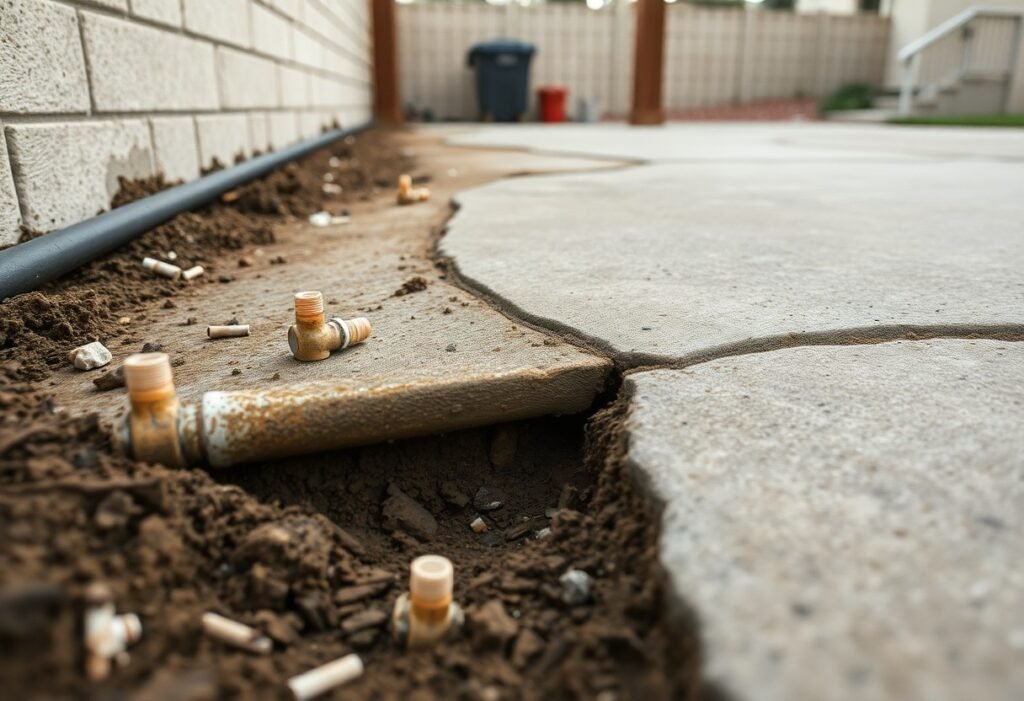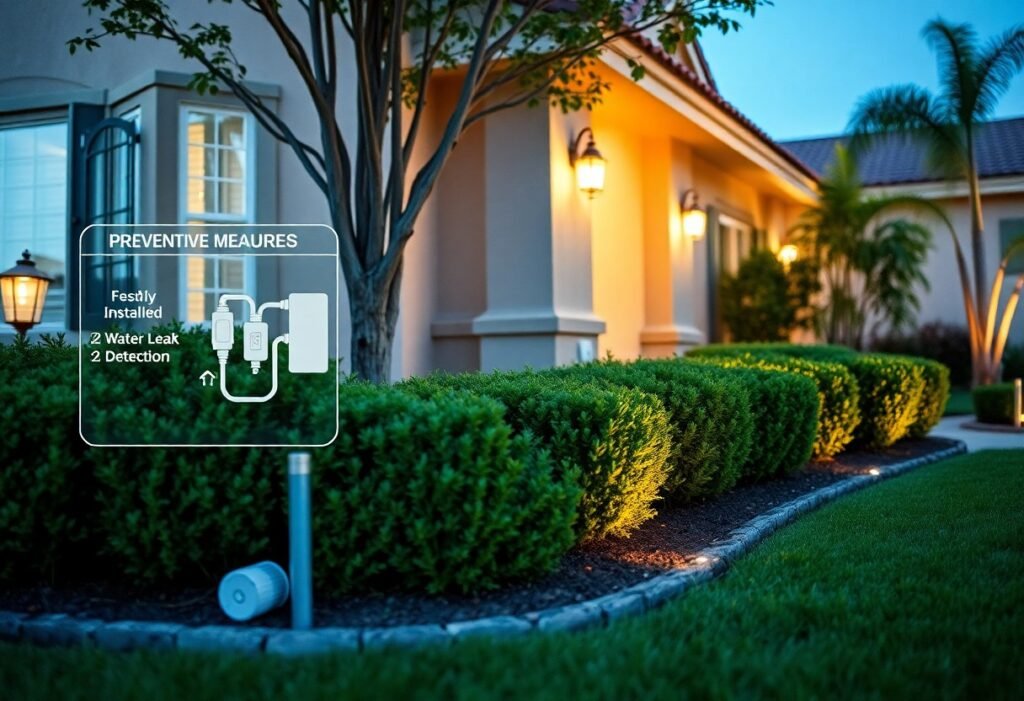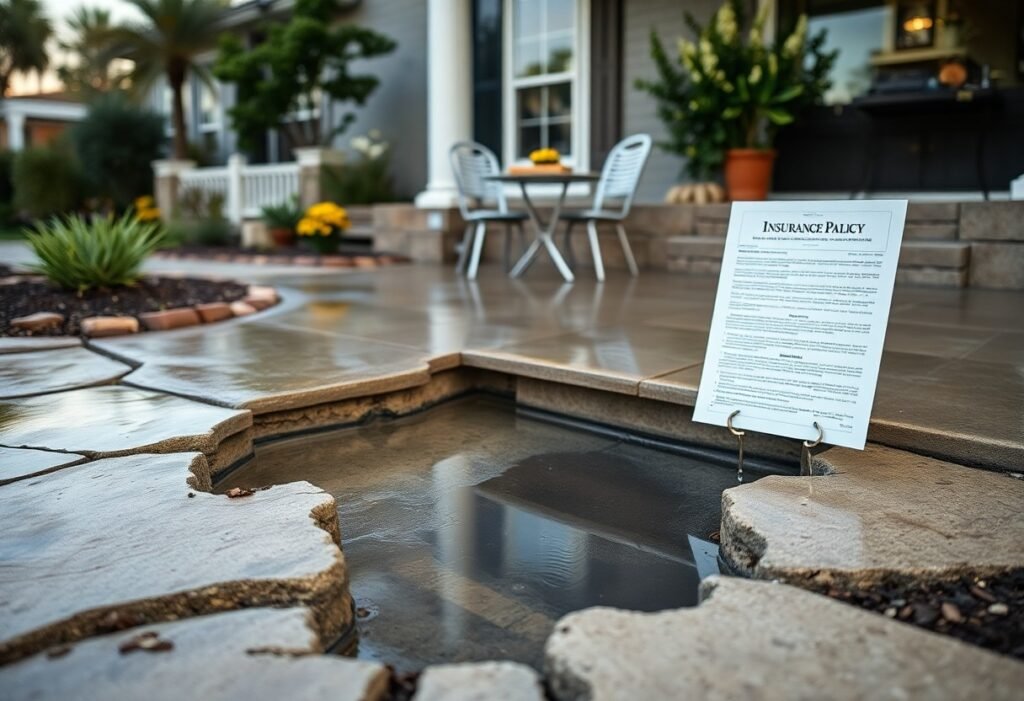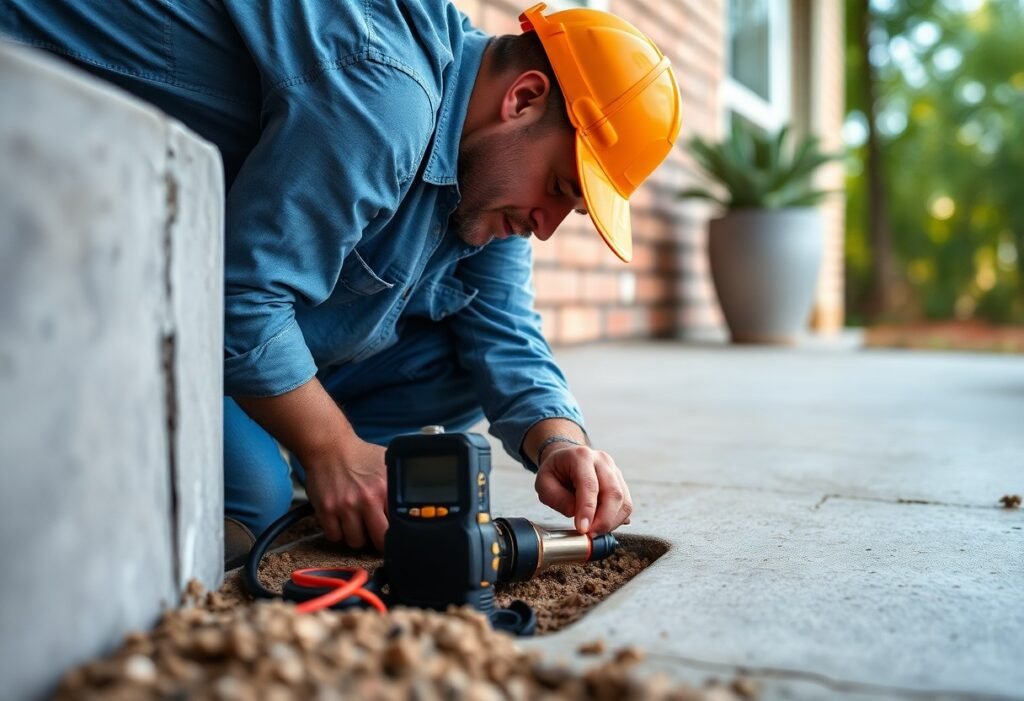How to Prevent Slab Leaks in Garden Grove, California Homes

There’s a growing concern among homeowners in Garden Grove about slab leaks that can lead to extensive water damage and costly repairs. To protect your home, you need to take proactive measures to prevent these leaks from occurring. This guide will help you identify potential risk factors and adopt effective strategies to safeguard your property against the dangers of water intrusion. By implementing these simple steps, you can ensure your foundation remains safe and secure.

Key Takeaways:
- Conduct regular inspections of your home’s plumbing system to identify early signs of leaks, including water stains, mold growth, or increased water bills.
- Ensure proper drainage around your home’s foundation to minimize soil movement and pressure on plumbing lines, which can help prevent slab leaks.
- Consider investing in pipe insulation, especially in areas prone to temperature fluctuations, to protect pipes from freezing and potential ruptures.
Key Environmental Factors Contributing to Slab Leaks in Garden Grove
Several environmental factors can elevate the risk of slab leaks in homes across Garden Grove. Understanding these influences helps homeowners mitigate potential damages. Key elements include:
- Soil composition
- Moisture levels
- Weather patterns
- Ground vibration
- Landscaping choices
Thou must assess these factors to protect your foundation from costly leaks.
Soil Composition and Stability
The soil composition around your home plays an vital role in its stability and vulnerability to leaks. Expansive clay soils, common in the Garden Grove area, can swell with moisture and shrink upon drying. This constant fluctuation exerts pressure on your foundation, risking damage and potential leaks in your slab.
Weather Patterns Impacting Foundations
Seasonal weather patterns in Garden Grove significantly impact slab integrity. Heavy rains can cause soil saturation, while droughts might lead the ground to withdraw. Both phenomenon lead to instability, further complicating the foundation’s condition. Frequent temperature fluctuations, which can compound soil movement, also heighten potential leak risks.
Long, dry summer months followed by intense winter storms can create a cycle of expansion and contraction in the soil. This cycle places stress on the pipes running beneath your slab, heightening the chance of fractures and eventual leaks. Across multiple seasons, this combination can lead to structural weaknesses that compromise the integrity of your home’s foundation, making vigilance vital in mitigating potential slab leaks. Understanding these weather-related challenges allows you to take proactive steps to safeguard your property.
Essential Home Maintenance Strategies to Prevent Slab Leaks
Implementing effective home maintenance strategies can significantly minimize the risk of slab leaks. Consistent practices not only ensure the integrity of your plumbing system but also extend the life of your home’s foundation. For comprehensive solutions, consider exploring Slab Leak Detection & Repair options available in your area.
Regular Plumbing Inspections
Scheduling regular plumbing inspections is a pivotal step in early leak detection. Knowing the condition of your pipes, fittings, and overall plumbing system allows you to spot potential weaknesses before they evolve into slab leaks. These inspections can catch signs of wear and tear, improper installation, or corrosion, which are common contributors to leaks.
Maintaining Proper Drainage Systems
Your property’s drainage system plays a vital role in preventing excess water from accumulating around your foundation. Poor drainage can lead to soil erosion and increased hydrostatic pressure against your home’s slab, heightening the risk for leaks. Maintaining optimal drainage involves clearing gutters, ensuring downspouts direct water away from the house, and landscaping to prevent pooling around the foundation.
Reinforcing proper drainage techniques includes regular gutter cleaning, optimizing the grading of your yard, and using French drains if necessary. Ensure that water is swiftly routed away from your home to avoid saturating the soil around your slab. Installing sump pumps in basements or crawl spaces can also assist in managing water levels, which minimizes seepage pressure and bolsters your home’s defenses against nuisance leaks.
The Role of Landscaping in Leak Prevention
Landscaping plays a vital role in preventing slab leaks by managing water drainage and reducing excess moisture around your home’s foundation. Properly designed outdoor spaces can divert water away from the slab, minimizing the risk of leaks due to soil erosion or increased pressure on plumbing pipes. By being deliberate in your landscaping choices, you can enhance the longevity of your home’s plumbing system.
Strategic Plant Placement and Watering Techniques
Positioning plants wisely and utilizing effective watering techniques can significantly mitigate the risk of slab leaks. Choose plants that require less water and are suited for the local climate, ensuring they don’t demand excessive moisture. Drip irrigation is ideal for targeted watering, reducing water oversaturation in the soil, which can apply pressure to your home’s foundation.
Utilizing Permeable Materials for Hardscaping
Incorporating permeable materials for patios, walkways, and driveways assists in managing surface water effectively. These materials allow rainwater to infiltrate the ground instead of pooling around the foundation, which can lead to leaks. By choosing permeable concrete, pavers, or gravel, you promote natural drainage, reducing the risk of water accumulation that could compromise your slab.
Permeable hardscaping not only enhances aesthetics but also plays a practical role in protecting your home from potential water damage. This innovative approach allows for efficient drainage, reducing the stress on your foundation and plumbing system. With rainwater filtering through, excess moisture can be reduced, decreasing soil movement that may disturb your plumbing lines. Implementing these materials can proactively shield your home from costly repairs caused by slab leaks.
Detecting Early Signs of Slab Leaks
Catching a slab leak early can save you from extensive damage and expensive repairs. Familiarize yourself with the subtle signals of a potential leak. For more detailed information, you can explore Expert Slab Leak Detection and Repair in Garden Grove to ensure you’re well-informed about the warning signs.
Unusual Water Bills and Increased Utility Costs
Your water bills can provide a clear indication of slab leaks. If you notice an unexpected spike in your monthly water costs, it may signal that water is leaking beneath your home’s foundation. Comparing your usage against previous months can help identify discrepancies; a sudden increase could mean you’re wasting water due to an undetected leak, which might not only increase your expenses but also contribute to significant property damage.
Visual Indicators of Moisture Damage
Keep an eye out for any visual signs of moisture damage around your home. Look for damp spots on floors, walls, or ceilings, as well as mold growth and paint peeling. These signs often indicate an underlying issue, such as a slab leak, that requires immediate attention. Noticing these markers early can drastically reduce complications arising from water damage while protecting both your home’s integrity and your investment.
Specific visual indicators you might encounter include wet carpeting or floorboards that feel damp to the touch, especially in areas directly above your home’s foundation. Additionally, walls showing unusual water spots or discoloration can be telltale signs of moisture infiltration due to leaks. Regular inspections can help you spot these early warning signs before they escalate into more significant issues such as extensive water damage or mold. Taking swift action upon noticing these symptoms can save you stress and costly repairs down the line.

Professional Solutions and When to Call a Specialist
Engaging a professional is key when slab leaks become a concern. Experts can conduct thorough inspections using advanced technology to detect leaks early, preventing extensive damage. If you notice signs such as a sudden spike in your water bill, mold growth, or unexplained damp spots, it’s time to consult a plumbing specialist. Their expertise can help you determine the root cause of leaks and recommend effective long-term strategies to safeguard your home.
Upgrading Plumbing Systems and Materials
Investing in modern plumbing systems made from durable materials can drastically reduce the chances of slab leaks. Opt for cross-linked polyethylene (PEX) or copper piping, which are resistant to corrosion and wear. By replacing old, galvanized pipes prone to rust and leaks, you enhance the overall reliability of your plumbing system while ensuring longevity and peace of mind.
Incorporating Leak Detection Technology
Utilizing modern leak detection technologies can proactively safeguard your home against potential slab leaks.
Innovative devices like smart water sensors and leak detection systems can provide real-time monitoring of your plumbing. These sensors alert you immediately if abnormal water flow is detected, allowing for quick intervention. Smart systems can even integrate with your smartphone, sending notifications and helping you take action before significant damage occurs. Regular maintenance and upkeep of these technologies further enhance your home’s leak prevention measures.
Conclusion
As a reminder, preventing slab leaks in your Garden Grove home requires regular maintenance and awareness of your plumbing system. Keep an eye out for signs of leaks, maintain proper drainage around your foundation, and schedule routine inspections with a professional plumber. Also, consider insulating your pipes, especially those in unheated areas, to protect against temperature fluctuations. By taking these proactive measures, you can significantly reduce the risk of slab leaks and ensure the longevity of your home’s foundation.
FAQ on Preventing Slab Leaks in Garden Grove, California Homes
Q: What are slab leaks, and what causes them in homes?
A: Slab leaks are pipes that run beneath the concrete foundation of a home that have developed leaks. The common causes of slab leaks can include corrosion due to water quality or pipe material, shifts in the foundation of the home, and high water pressure. In Garden Grove, where soil type and seismic activity can also play a role, it’s important to be aware of these factors to prevent future leaks.
Q: What preventative measures can homeowners take to reduce the risk of slab leaks?
A: Homeowners can take several steps to mitigate the risk of slab leaks. Regularly inspect for water stains, damp spots, or an unusual increase in water bills, which could indicate a hidden leak. Additionally, ensure that pipes are insulated and maintain proper water pressure. Utilizing high-quality materials for plumbing and having routine checks by a licensed plumber can also help in identifying vulnerabilities before leaks occur. Proper landscaping and drainage systems can keep water away from the foundation, minimizing soil erosion and pressure on pipes.
Q: How often should homeowners in Garden Grove have their plumbing system inspected to prevent slab leaks?
A: It is advisable for homeowners to have their plumbing system inspected at least once every couple of years. However, homes with older plumbing systems or those that have previously experienced leaks may benefit from more frequent inspections. Regular assessments by a qualified plumbing professional can identify potential issues, such as wear and tear in pipes, before they escalate into leaks. Being proactive in maintenance can save homeowners considerable time and money in repairs down the line.

